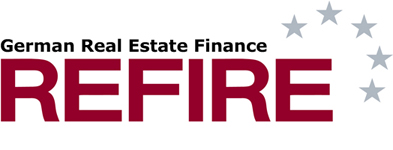
Commerzbank AG
Sascha Klaus - Commerzbank
According to Sascha Klaus, Commerzbank's divisional board member for non-core real estate assets, "Both transactions show that we are continuing to press ahead with our value-preserving run-down, and that we are significantly reducing both risk and complexity. In this respect we are taking advantage of market opportunities, in order to achieve best possible results through competitive bidding procedures."
Commerzbank confirmed earlier this month that it is selling a further two real estate loan portfolios valued at €2.9bn from its erstwhile Eurohypo subsidiary's legacy loan book. The first portfolio, with €2.2bn of European loans, is going to a consortium of JP Morgan and Lone Star, while the second is a German portfolio with a face value of €0.7bn, being bought by Oaktree.
Commerzbank, Germany's second-largest lender, said the portfolios account for about 17% of the total of commercial real estate loans of €17.5bn still held in its Non-Core Assets (NCA) book as at the end of March 2015.
The bank said the packages are being sold for an overall discount of around 3%, adding that the transaction will generate a positive net capital effect of €105m in the third quarter of the year.
The sales follow similar transaction last year as the bank continues to reduce the number and complexity of its non-core assets and regain its own health, following an emergency investment of €18.2bn by the federal government during the financial crisis, in return for a 25% shareholding in the bank. The CRE loan book is now €14.6bn.
The €2.2bn of European loans being bought by JP Morgan and Lone Star is two-thirds performing and one-third a mix of sub- and non-performing loans. It comprises loans secured by commercial properties across Austria, Belgium, the Czech Republic, Cyprus, Denmark, Finland, Hungary, Luxembourg, Netherlands, Rumania, Sweden, Switzerland, Slovakia and Turkey.
Underbidders for the portfolio are thought to include Colony Capital, Cerberus Capital Management and Oaktree Capital Management. The JP Morgan/Lone Star consortium picked up an earlier Commerzbank €4.4bn Spanish portfolio in May last year, at about a 30% discount to face value.
That deal, known as Project Octopus, was one of the biggest loan sales in Europe last year, with JP Morgan subsequently taking control of the performing loans, while co-investor Lone Star took over the sub- and non-performing loans. It also contained some of the best-quality assets to come to the market in recent years, including about 200 loans backed by about 40 shopping centres owned by many top European companies, plus high quality office and hotel portfolios.
The second portfolio in this latest disposal, bought by Oaktree, is made up of German NPLs with 257 loan tranches involving 114 different borrower group with total liabilities, unpaid interest, amortisation and other costs amounting to €752.15m. The portfolio generates annual rent of €51.2m (of which 10 assets account for €26.2m of the amount).
The underlying property portfolio consists of 177 separate buildings, including 42 offices (among which are 5 mixed-use assets) 35 multi-family housing units, 14 mixed residential and commercial buildings, 8 warehouses, 7 shopping centres, 10 hotels, five factory buildings, three logistics properties, five retail parks, or "Fachmarktzentren", plus an assortment of unusual one-off assets such as a medical centre, a car park, a petrol station, some small farms, etc.
According to Sascha Klaus, Commerzbank's divisional board member for non-core real estate assets, "Both transactions show that we are continuing to press ahead with our value-preserving run-down, and that we are significantly reducing both risk and complexity. In this respect we are taking advantage of market opportunities, in order to achieve best possible results through competitive bidding procedures."
As part of its planned return to a dividend after eight years, Commerzbank completed a €1.4bn capital raising in April, which pushed its closely watched core tier one capital ratio above the 10% level demanded by investors.
